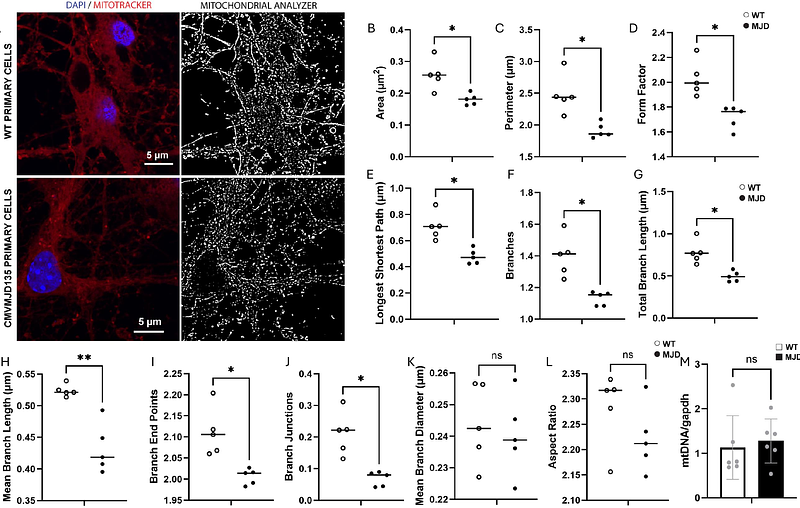Mitochondrial dysfunction in Machado Joseph disease: insights from a multi-model system

Mitochondrial dysfunction in Machado Joseph disease: insights from a multi-model system
Simo, I.; Robinson, K. J.; Kam, J.; Kuriakose, A.; Paric, E.; Cheng, F.; Potapenko, A.; An, Y.; Lee, A.; Laird, A. S.
AbstractSpinocerebellar ataxia type-3 (SCA3), also known as Machado Joseph disease, MJD) is a fatal, neurodegenerative disease belonging to the polyglutamine repeat disease family, caused by inheritance of an abnormal form of the ATXN3 gene, carrying a longer than usual trinucleotide repeat sequence. Within this study we explored mitochondrial function in a range of diTerent experimental models of MJD, including transgenic zebrafish, mice and neuronal cells, to gain an understanding of mitochondrial function in the disease, and possible mechanisms of any dysfunction. Firstly, we examined the transgenic CMVMJD135 mouse model that develops impaired movement, neurodegeneration and decreased survival. We performed proteomic analysis on brain lysates extracted from a cohort of male and female WT and MJD mice, for analysis of diTerences in male and female mice separately. We identified that a major diTerence predicted by Ingenuity Pathway Analysis to be in both male and female MJD mice was related to impaired oxidative phosphorylation and mitochondrial dysfunction. We examined primary neuron cultures obtained from CMVMJD135 mice, validating the findings of the proteomic analysis, and finding changes to mitochondrial morphology, as well. We further examined a transgenic zebrafish model of MJD that expresses EGFP fused human ataxin-3 with short or long polyQ stretches (23 or 84Q, respectively) in neurons (expression driven under the elav/HuC promoter). The MJD zebrafish also exhibit altered mitochondrial electron transport chain complex protein levels, together with enhanced sensitivity to rotenone administration, which may be a valuable readout for treatment investigation studies in the future. Together, this study confirms, and extends on, the growing body of evidence suggesting that mitochondrial dysfunction plays a role in MJD, warranting investigation for therapeutic intervention.